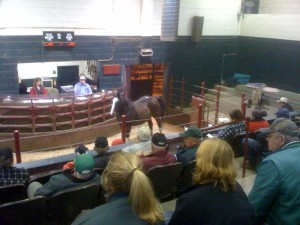For the project I am working on, Horses, Sports, Culture and Slaughter, I have wanted to get a better understanding of the history of horse slaughter, in the United States. Finally, after a lot of searching, I found this resource: White Paper by Allen Warren.
For those of you who are interested in the history, in some detail, read from:
The first of the three men mentioned at the beginning of this paper who drastically altered the ancient relationship between humans and horses was Henry Ford. While snipping the ribbon to open his first Model T automobile assembly line plant in Detroit on October 1, 1908, Ford’s comments to the press included the following statement: “My goal is to relieve the American farmer of the burden of horse care.”
to:
A post script to this story is that another U.S. industrial giant, Quaker Oats, better known for its breakfast products, bought out the struggling Ken-L-Rations operation just before World War Two and continued to slaughter horses, although in much smaller numbers and selling a few carloads a week of Chapel’s original pickled horse meat in eastern cities where immigrants from Europe since the first world war had eaten it before and couldn’t afford to buy beef or pork at war time prices
Basically the history details three key protagonists:
Henry Ford: Invented the technology that displaced the horse which, in turn, created a supply glut of horses.
Phillip Chapel: Exploited this supply glut by initially buying up horses for the WW1 effort. When that market ended, he supplied horse meat for Europe because it lacked the agricultural infrastructure to feed itself after the war. When that market ended, he pivoted again, this time to supply dog food on a massive scale within the United States. He began his operations in New Jersey, shifted to Illinois, and then set up a presence in Montana to exploit the wild horse population.
Frank Litts: First animal activist, the “Cowboy Bomber” who tried to put an end to Chapel’s slaughter business, first through fair means, then through trying to blow up Chapel’s operation in Miles City, Montana.
Some fascinating stuff along the way. Very well worth a detailed read for anyone interested in the issue of the horse’s relationship with man.


You can find out what we are attempting to do in Washington state to permanently ban not only the slaughter of horses and other equines here, but also to make it illegal to sell them for or transport them to slaughter. We have already made it illegal in one county in which Bouvry Exports was trying to open a horse slaughter operation two years ago. Visit the Washington Horse Defense Coalition Face Book group page and learn about a new law being introduced into our state legislature named the “Washington Defense of Horses Act”. We invite horse lovers all over the country to join this group so that we will have numbers on our side when the bill is introduced. Thank you,
Allen Warren, Horse Harbor Foundation and WHDC
Allen, thanks for your great piece on the history of slaughter. I spent hours trying to piece things together, until Jerry Finch sent me a PDF of your article. I was then able to find it online. Awesome job.
You bet, Alex. Thanks for bringing this out again. It got lot of attention a couple of years ago and glad it will be read again. Really glad you featured Frank Litts in your intro. I had never heard of him before I started researching that paper, but equine advocates today should know who our patriarch was, and that he was willing to risk his life to stop horse slaughter. Please urge your readers to join our Facebook group, the Washington Horse Defense Coalition. We’re going to try and get this bill passed a little differently here, by getting the general public behind it first. If successful, we will package the campaign and make it available to horse advocates in other states that want to ban slaughter. One state at a time, and maybe then it will become law of the land.
Allen, in your research did you uncover the reason for the Texas anti horse meat law of 1948? Why it was proposed, and by whom? Also, did the farming equipment brands offer horse trade in programs to allow farmers to swap their horse power for mechanical power ? Any examples of that ? And if so, what did those companies then do with the acquired horses ?
Our mutual friend Jerry Finch, the man I call “The Godfather of Horse Rescue”, is working on an article right now for Horseback Magazine that chronicles horse slaughter law in Texas, Alex, and would be your source on that. I did not find anything about farm machinery companies offering to take in horses in trade. Interesting question, however, and if I can dig up anything will let you know.